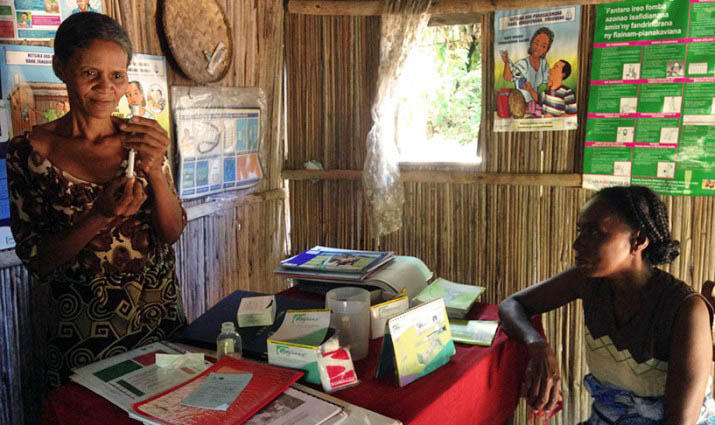Improving sustainability of Madagascar’s medical store

Credit: Colin Gilmartin/Management Sciences for Health
Madagascar’s central medical store, SALAMA, distributes more than 1,500 tons of medicines a year to people in the island nation. This parastatal nonprofit association is responsible for the procurement, storage, distribution, and quality assurance of essential medicines and other health products. It serves 112 districts and approximately 2,700 government-owned service delivery points.
When essential medicines and other health products are supplied by the public sector, a government mechanism called Non-Stop Financing for Medication Supply (in French, FANOME) recovers some logistical and administrative costs. Patients pay for some of their medicines out of pocket, which offsets costs and contributes to the sustainability of the system. SHOPS Plus aims to help SALAMA improve its ability to recover costs through this system.
Steven Harsono and Ben Davis of WDI, a SHOPS Plus partner, determined that the greatest challenge facing FANOME is the complexity of its management structure. Multiple agencies are involved in managing FANOME, but no single agency has the full authority to manage its overall performance. As responsibility for FANOME is dispersed across health system actors and levels, so too are the data that could be used to monitor its proper function.
The team recommended developing a management framework for FANOME that links key performance metrics to decisionmaking. Harsono and Davis also recommended assessing wholesale pharmacies to explore factors contributing to their reported underperformance. The pharmacies play a critical role in FANOME by linking SALAMA to primary health clinics in each district. The team will work with country stakeholders to develop a pilot project for addressing their underperformance. Following the launch of a pilot, the FANOME performance management framework will be used to monitor its efficacy.
“Empowering local communities and households to financially contribute to quality health products and services requires strong governance and management systems to be in place. Through this project, we are working alongside the government of Madagascar to improve access with business-minded approaches,” said Harsono.